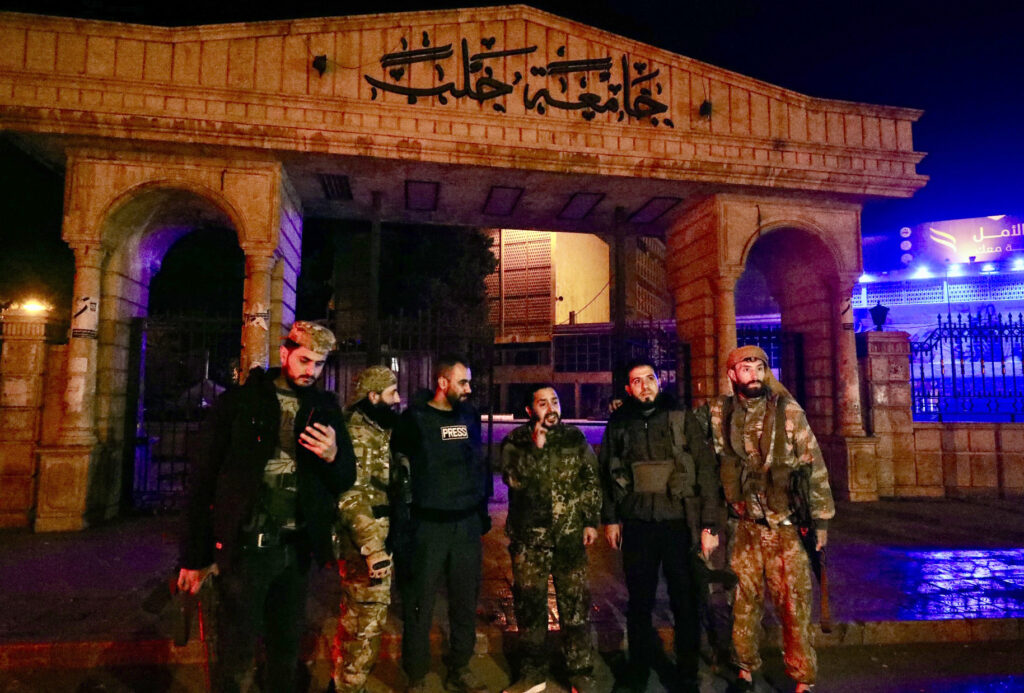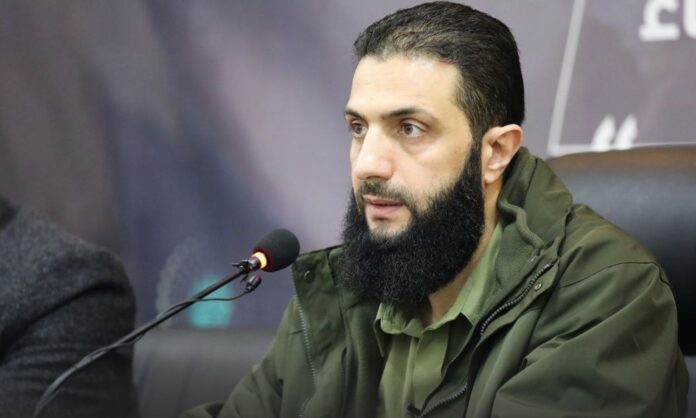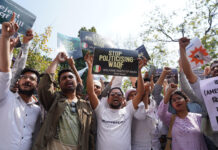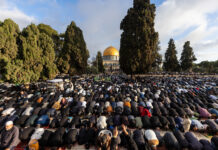Ahmad Al-Shara’a, widely known as Abu Mohammad al Jolani, is the man spearheading rebel efforts to topple Bashar Al Assad in Syria. But who is he exactly?
Al Jolani is the leader of the main rebel group Hay’at Tahrir al-Sham which many are predicting will overthrow Bashar Al Assad imminently.
But he also has a $10 million American bounty on his head because he used to be an Al Qaeda fighter.
Born in Riyadh to Syrian parents displaced by Israel’s occupation of the Golan Heights, Jolani grew up in Damascus.
Witnessing decades of injustice, especially during the Second Palestinian Intifada, solidified his resolve to wage jihad which is why he decided to join Al Qaeda in Iraq after the 2003 U.S. invasion, where he gained tactical and leadership expertise.
Jolani returned to Syria in 2011 to establish Jabhat al-Nusra, an Al Qaeda-affiliated group focused on overthrowing the Assad regime.
Early support from ISIS’s Abu Bakr al-Baghdadi allowed him to build an organised, disciplined force. His leadership earned respect among opposition fighters, with many viewing him as a Syrian patriot fighting a tyrannical regime.
Subscribe to our newsletter and stay updated on the latest news and updates from around the Muslim world!
In 2016, Julani rebranded Jabhat al-Nusra as Jabhat Fateh al-Sham, cutting ties with Al-Qaeda. Later, this evolved into Hay’at Tahrir al-Sham (HTS), a group committed to toppling Assad. Julani justified this shift by stating: “This new formation has no relation to any external party.”
Reflecting on his commitment, Julani said: “The fight in Syria is for Syrians by Syrians. Foreign interventions have only brought more destruction and complexity to our struggle.”

Under Jolani’s leadership, HTS established the Syrian Salvation Government (SSG) in Idlib, governing nearly four million Syrians. He envisions a governance model rooted in Islamic principles while accommodating Syria’s diversity. He described this vision as “a civil state that respects Islamic values while ensuring freedom and rights for all citizens, regardless of their faith or ethnicity.”
HTS under Jolani has actively fought against factions like ISIS, including eliminating their leader Abu Hussein al-Husseini al-Qurashi in 2023.
HTS has no clear, direct state sponsor in the traditional sense, and its power is derived from a combination of local control, strategic alliances (especially with Turkey for regional stability), and its historical ties to global jihadist networks which still impact its ideology and operations.
The group’s current power largely stems from its own governance and military capabilities in Idlib.
However, Al Jolani has been designated a terrorist by the United States, with a $10 million bounty on his head for his leadership of Jabhat al-Nusra, which was initially al-Qaeda’s Syrian affiliate.
The UK also lists HTS as a terror organisation because of its links to Al Qaeida, stating that “Hay’at Tahrir al-Sham” should be treated as an alternative name for the organisation.
There have also been allegations of human rights abuses under his Jolani’s leadership, including arbitrary arrests, torture, and severe crackdowns on dissent within areas controlled by HTS.
Critics also argue that Al Jolani has established an authoritarian regime in Idlib, where HTS holds significant control. Despite his claims of promoting a more moderate form of governance, critics say his rule has been characterised by suppression of protests, and the monopolisation of economic and security administration, leading to dissatisfaction among local populations.
While Al Jolani has publicly moved away from global jihadist aims towards a more localised fight against Assad, critics view this shift as strategic pragmatism rather than a genuine ideological transformation.
There is also scepticism regarding Al Jolani’s assurances of protecting minorities and promoting secular governance. His history with groups like Al Qaeda and his enforcement of Shari’ah law have raised fears among minorities like Christians and Druze about their status and rights under his control.
But in a 2021 PBS interview, he argued: “First and foremost, [Idlib] does not represent a threat to the security of Europe and America. This region is not a staging ground for executing foreign jihad.”
Reflecting on his journey, he added: “I believe that everyone in life goes through phases and experiences… As you grow, you learn, and you continue to learn until the very last day of your life.”























